 While Julianne Moore can start clearing space on her mantel for that best actress golden Oscar statuette, it is the troupe of passionate players at the heart of this story – an author, writers, producers, directors, actors and advocates – who brought Still Alice to the big screen and who also deserve the accolades.
While Julianne Moore can start clearing space on her mantel for that best actress golden Oscar statuette, it is the troupe of passionate players at the heart of this story – an author, writers, producers, directors, actors and advocates – who brought Still Alice to the big screen and who also deserve the accolades.
Julianne’s tour de force performance in the role of a lifetime as a woman with early on-set Alzheimer’s disease, was made possible because a group of people were committed to showing the world what Alzheimer’s feels like for the 5.4 million Americans diagnosed today.
The “behind-the-scenes” story is how Still Alice just may be the little movie that ignites a big movement on how we view people with cognitive impairment and neurodegenerative diseases and propels Alzheimer’s onto the same stage of awareness and support as AIDS, cancer and heart disease.
The back-story begins in 1998 as Lisa Genova, a Harvard-trained neuroscientist with a grandmother suffering from Alzheimer’s disease, discovers that almost all the literature about dementia only looks at Alzheimer’s from the outside in, the perspectives all those of clinicians, researchers and family caregivers instead of the actual people diagnosed with the disease.
“What really drove the inspiration for the book was asking myself ‘what does Alzheimer’s feel like’ and not being able to find the answer in any literature – scientific or otherwise,” Genova told me during our hour-long phone interview. “Somehow I felt I had to write this story and in doing so it would keep me connected to my grandma.”
It took a few years and rejection from all the publishers she approached for Genova to bring her novel approach of telling the “inside out” story of Alzheimer’s to the printed page. Not deterred by publishers’ claims that a novel about Alzheimer’s was too limited, fearful and depressing, Genova self-published Still Alice in 2007 finally letting readers into the mind, heart and daily experiences of 51-year-old Alice. While the novel is about walking in Alice’s shoes, Genova also realistically portrayed the family’s experience with an understanding that the Alzheimer’s diagnosis affects more than just the person with the disease.
Read other Alzheimer’s caregiving books recommended by Caregiving Club
From Book to Screen
Flash forward to an Alzheimer’s Association advocacy event in Washington, D.C. where Hollywood insider and Alzheimer’s caregiver and advocate, Elizabeth Gelfand-Stearns, listens to Genova, whose book has caught fire within the Alzheimer’s community and has hit the New York Times best-seller list, read a moving passage from Still Alice.
It struck a chord with Gelfand-Stearns, who had a maternal grandmother and a mother with Alzheimer’s. Along with her father and family, Gelfand-Stearns had created The Judy Fund, to honor her mother who was diagnosed with the disease at age 62, considered early-onset. The combination of telling a story of Alzheimer’s for the first time from the perspective of the person diagnosed AND showcasing that Alzheimer’s is not always about being age 80 and laying helpless in a nursing home – it can strike in your 40s, 50s, 60s – was all Gelfand-Stearns needed to start looking for a way to bring the book to the screen.

The Judy Fund Event (L to R): Sherri Snelling, Caregiving Club; Dr. Maria Carillo, National Alzheimer’s Association; Elizabeth Gelfand-Stearns, The Judy Fund; Dr. Jill Kalman, Mt. Sinai Medical Center New York
“I just knew so many people, especially women who are disproportionately affected by Alzheimer’s, would recognize themselves in Alice,” Gelfand-Stearns told me. “This story was the opposite of the typical response to Alzheimer’s – to push it away and not think about it because ‘I’ll worry about it when I’m 80.’ This was the OMG moment when I realized everyone can see themselves in Alice – an accomplished, successful professor, wife and mother in her 50s. If Alice can have it, so could I, or my sister, or my friend.”
Read Sherri Snelling’s PBS Next Avenue article on how Alzheimer’s Impacts Women the Most
Gelfand-Stearns says the reality is Alzheimer’s is the 6th leading cause of death in the U.S. and the only disease in the Top 10 which has no cure and no survivors. This is our society’s next big epidemic and it’s important to not delay what we know is coming – a rising tide of aging people who will have dementia yet no hope to slow the progression or cure the affects.
Together with her producing and advocacy partner, Maria Shriver (the poster woman for the toll on families dealing with Alzheimer’s, her father Sargent Shriver died from the disease) Gelfand-Stearns helped shepherd the book to its big screen debut collecting various co-producing partners. The wish became reality when Julianne Moore signed on to play the titular character, Alice, and convinced her fellow cast to sign up for well-below their star status asking prices, including Alec Baldwin as Alice’s husband and young sensation Kristen Stewart as the eventual caregiving daughter, Lydia.
Moore, whose acting skills are matched by her exhaustive character research, insisted on spending four months talking to early on-set Alzheimer’s patients, their family caregivers, researchers, doctors and long term care agencies in order to fully embrace and immerse herself in the Alzheimer’s experience and to present the story of how it feels to day-by-day lose your memory, your independence, your life.
“I need to see it for myself to authentically play it,” Moore told Gelfand-Stearns. Moore became especially close to one woman, Sandy, who was diagnosed at age 45, even younger than the fictional Alice. Moore related that Sandy would have days where she could remember and function almost normally, and then there would be days where things in her brain were lost. What moved Moore is while Alzheimer’s was erasing a patient’s memories and daily abilities, the personality and essence of who this person is remained. It is the realization that Alzheimer’s patients do not disappear, that Moore has said in numerous interviews, is what interested her in doing the movie.
Rounding out this passionate group are screenwriters and directing partners, Richard Glatzer and Wash Westmoreland. Right before filming began, Glatzer was diagnosed with ALS, different from Alzheimer’s but still a progressive neurodegenerative disease. His understanding of how your life is slowly slipping away from your control brought a nuanced touch to the movie and inspired the cast and crew that life and your life’s passion can continue. During production, unable to speak, Glatzer would direct the actors via an iPad.
All involved with the movie are hopeful this becomes the defining moment when society, our government agencies and legislators realize we can no longer dismiss or ignore the impact of dementia.
“It’s easy for the world to ignore the elderly,” Genova tells me. “People don’t typically rally around an 80-year-old with Alzheimer’s, it’s sad and heartbreaking but it does not create a movement. But it’s almost impossible to ignore someone in their 50s with this disease.”
Genova believes this is why the vast moviegoing public may make Still Alice a rallying cry and help to erase the stigma of this disease which has lived in the shadows for too long (just think of what Philadelphia did to ignite support for those with AIDS and HIV).
Gelfand-Stearns said many years ago we never said the word “cancer,” it was called the “Big C” because people were afraid and it was a death sentence. Then in the ‘80s and ‘90s AIDS and HIV was stigmatized and seen as only affecting a certain part of the population until Hollywood got behind the movement and gained Washington, D.C.’s attention.
Today, with treatments such as mammograms and AZT and society’s support with walks and ribbons, and the federal funding needed – these diseases can claim survivors and the stigma is non-existent. Gelfand-Stearns is hoping Still Alice and the campaign she is launching with Maria Shriver and the Alzheimer’s Association, My Brain, will have the same results. The campaign strives to have people use their brains in combating this disease and to understand that an Alzheimer’s diagnosis, which on average is around age 72, means the person has actually been living with the beginnings stages of the disease for 15-20 years.
“My wish is that Julianne wins the Oscar, making everyone want to see this film which will lead to showing people the humanity, love and dignity of Alzheimer’s patients,” an emotional Genova told me. “If my book and this movie can be a cause for the call to action, what could be better than that?”
©2015 Sherri Snelling

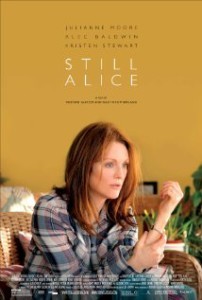
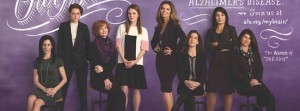
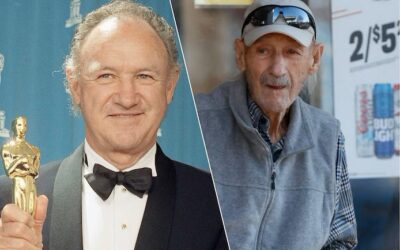
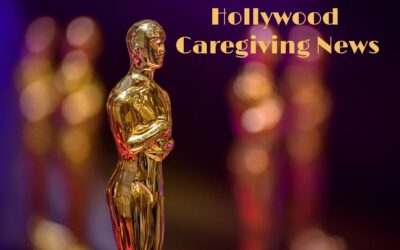
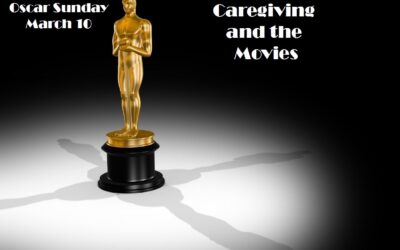
0 Comments
Trackbacks/Pingbacks